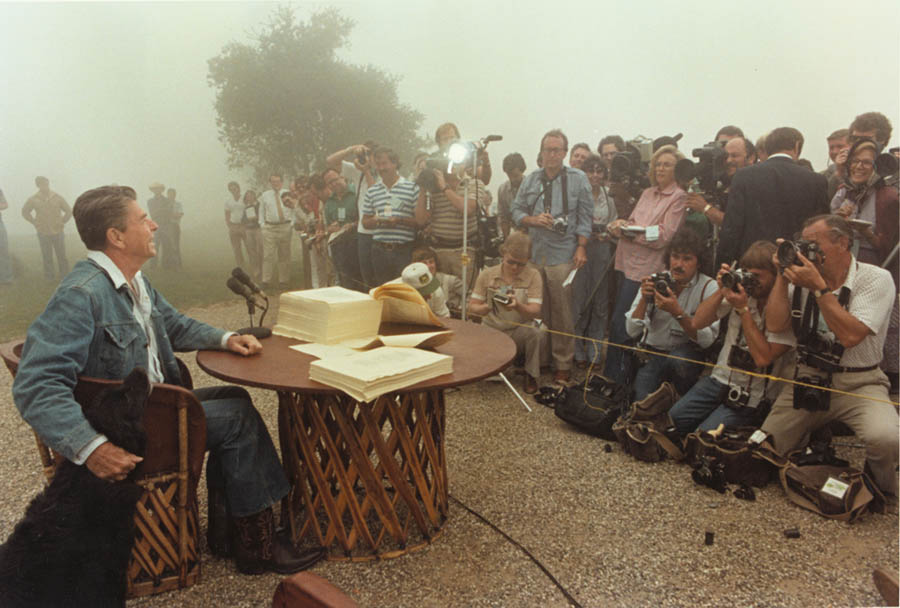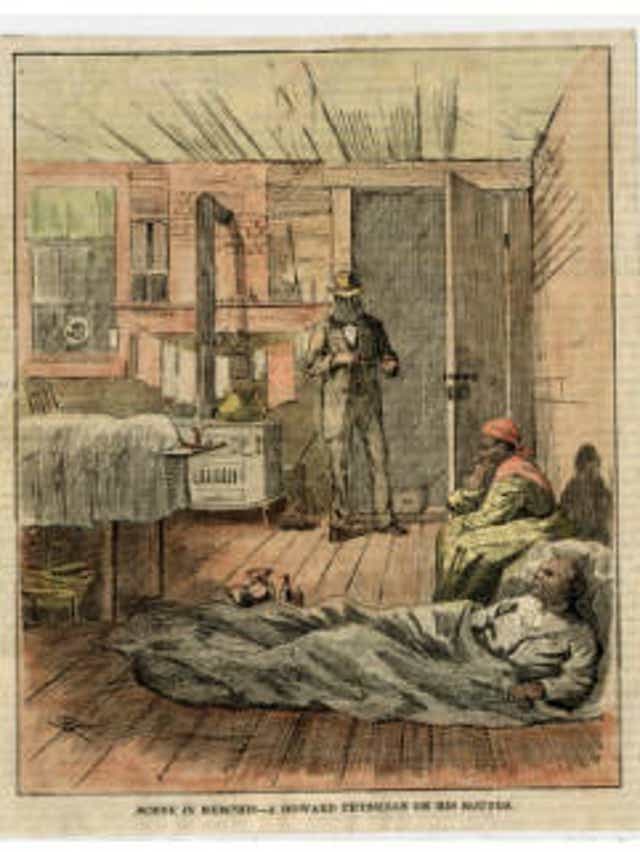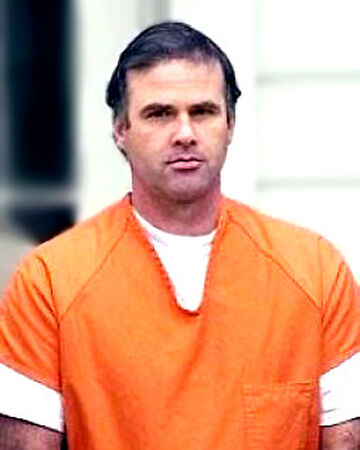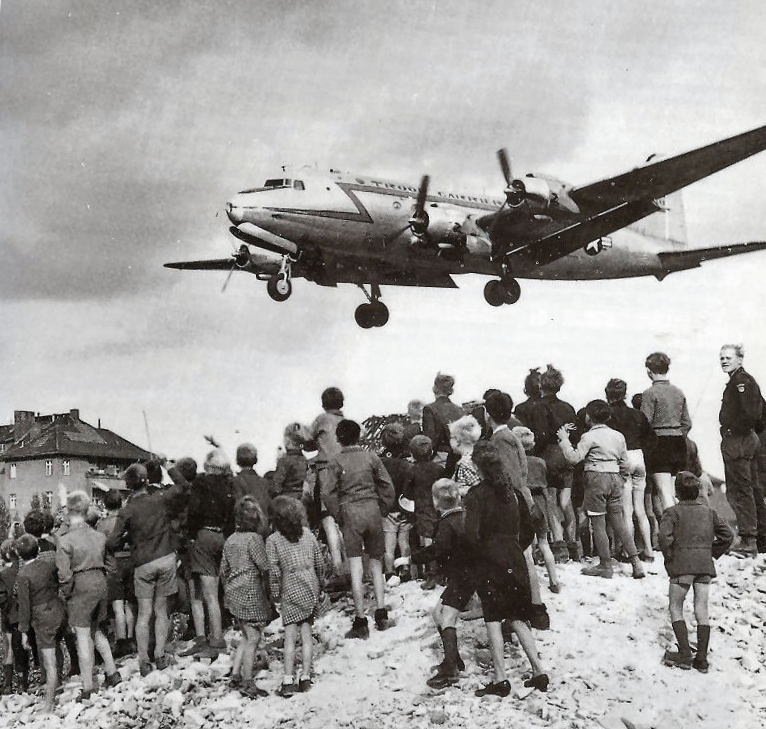
Berlin is divided
Shortly after midnight on this day in 1961, East German soldiers begin laying down barbed wire and bricks as a barrier between Soviet-controlled East Berlin and the democratic western section of the city.
After World War II, defeated Germany was divided into Soviet, American, British and French zones of occupation. The city of Berlin, though technically part of the Soviet zone, was also split, with the Soviets taking the eastern part of the city. After a massive Allied airlift in June 1948 foiled a Soviet attempt to blockade West Berlin, the eastern section was drawn even more tightly into the Soviet fold. Over the next 12 years, cut off from its western counterpart and basically reduced to a Soviet satellite, East Germany saw between 2.5 million and 3 million of its citizens head to West Germany in search of better opportunities. By 1961, some 1,000 East Germans—including many skilled laborers, professionals and intellectuals—were leaving every day.
In August, Walter Ulbricht, the Communist leader of East Germany, got the go-ahead from Soviet Premier Nikita Khrushchev to begin the sealing off of all access between East and West Berlin. Soldiers began the work over the night of August 12-13, laying more than 100 miles of barbed wire slightly inside the East Berlin border. The wire was soon replaced by a six-foot-high, 96-mile-long wall of concrete blocks, complete with guard towers, machine gun posts and searchlights. East German officers known as Volkspolizei (“Volpos”) patrolled the Berlin Wall day and night.
Many Berlin residents on that first morning found themselves suddenly cut off from friends or family members in the other half of the city. Led by their mayor, Willi Brandt, West Berliners demonstrated against the wall, as Brandt criticized Western democracies, particularly the United States, for failing to take a stand against it. President John F. Kennedy had earlier said publicly that the United States could only really help West Berliners and West Germans, and that any kind of action on behalf of East Germans would only result in failure.
The Berlin Wall was one of the most powerful and iconic symbols of the Cold War. In June 1963, Kennedy gave his famous “Ich bin ein Berliner” (“I am a Berliner”) speech in front of the Wall, celebrating the city as a symbol of freedom and democracy in its resistance to tyranny and oppression. The height of the Wall was raised to 10 feet in 1970 in an effort to stop escape attempts, which at that time came almost daily. From 1961 to 1989, a total of 5,000 East Germans escaped; many more tried and failed. High profile shootings of some would-be defectors only intensified the Western world’s hatred of the Wall.
Finally, in the late 1980s, East Germany, fueled by the decline of the Soviet Union, began to implement a number of liberal reforms. On November 9, 1989, masses of East and West Germans alike gathered at the Berlin Wall and began to climb over and dismantle it. As this symbol of Cold War repression was destroyed, East and West Germany became one nation again, signing a formal treaty of unification on October 3, 1990.

U.S. PRESIDENTS
1981
Reagan signs Economic Recovery Tax Act (ERTA)
On August 13, 1981, at his California home Rancho del Cielo, Ronald Reagan signs the Economic Recovery Tax Act (ERTA), a historic package of tax and budget reductions that set the tone for his administration’s overall economic policy.

LATIN AMERICA
1926
Fidel Castro born
Cuban revolutionary Fidel Castro is born in the Oriente province of eastern Cuba. The son of a Spanish immigrant who had made a fortune building rail systems to transport sugar cane, Fidel attended Roman Catholic boarding schools in Santiago de Cuba.

ART, LITERATURE, AND FILM HISTORY
1952
“Hound Dog” is recorded for the first time by Big Mama Thornton
Elvis Presley’s “Hound Dog” (1956) is one of the biggest and most instantly recognizable pop songs in history. It’s a song so closely associated with the King of Rock and Roll, in fact, that many may mistakenly assume that it was a Presley original.

ANCIENT AMERICAS
1521
Aztec capital falls to Cortés
After a three-month siege, Spanish forces under Hernán Cortés capture Tenochtitlán, the capital of the Aztec empire. Cortés’ men leveled the city and captured Cuauhtémoc, the Aztec emperor. Tenochtitlán was founded in 1325 A.D. by a wandering tribe of hunters and gatherers.

SPORTS
1995
New York Yankees star Mickey Mantle dies
Former New York Yankees star Mickey Mantle dies of liver cancer at the age of 63. While “The Mick” patrolled center field and batted clean-up between 1951 and 1968, the Yankees won 12 American League pennants and seven World Series championships.

ART, LITERATURE, AND FILM HISTORY
1982
Fast Times at Ridgemont High debuts
On August 13, 1982, the teenage coming-of-age comedy Fast Times at Ridgemont High opens in theaters around the United States. Written by Cameron Crowe and directed by Amy Heckerling, the film follows a year in the life of high school students Stacy (Jennifer Jason Leigh).

INVENTIONS & SCIENCE
1878
First victim of Memphis yellow fever epidemic dies
On August 13, 1878, Kate Bionda, a restaurant owner, dies of yellow fever in Memphis, Tennessee, after a man who had escaped a quarantined steamboat visited her restaurant. The disease spread rapidly and the resulting epidemic emptied the city.

CRIME
1961
Yosemite killer Cary Stayner born
Cary Stayner, the serial killer convicted in the grisly murders of four women near Yosemite National Park, is born on August 13, 1961. In 1972, Stayner’s childhood took a tragic turn when his younger brother Steven, then seven, was kidnapped while walking home from school in the family’s hometown of Merced, California.

COLD WAR
1948
Record day for the Berlin Airlift
Responding to increasing Soviet pressure on western Berlin, U.S. and British planes airlift a record amount of supplies into sections of the city under American and British control. The massive resupply effort, carried out in weather so bad that some pilots referred to it as as “Black Friday,” signaled that the British and Americans would not give in to the Soviet blockade of western Berlin.

INVENTIONS & SCIENCE
1902
Rotary engine inventor Felix Wankel born
The German engineer Felix Wankel, inventor of a rotary engine that will be used in race cars, is born on August 13, 1902, in Lahr, Germany. Wankel reportedly came up with the basic idea for a new type of internal combustion gasoline engine when he was only 17 years old.

AMERICAN REVOLUTION
1781
Patriots ambush Loyalists as French set sail
On August 13, 1781, Patriot forces led by Colonel William Harden and Brigadier General Francis Marion, known as the “Swamp Fox,” lure British commander Major Thomas Fraser and his 450 soldiers into an ambush at Parker’s Ferry, 30 miles northwest of Charleston, South Carolina.
Comments
Post a Comment